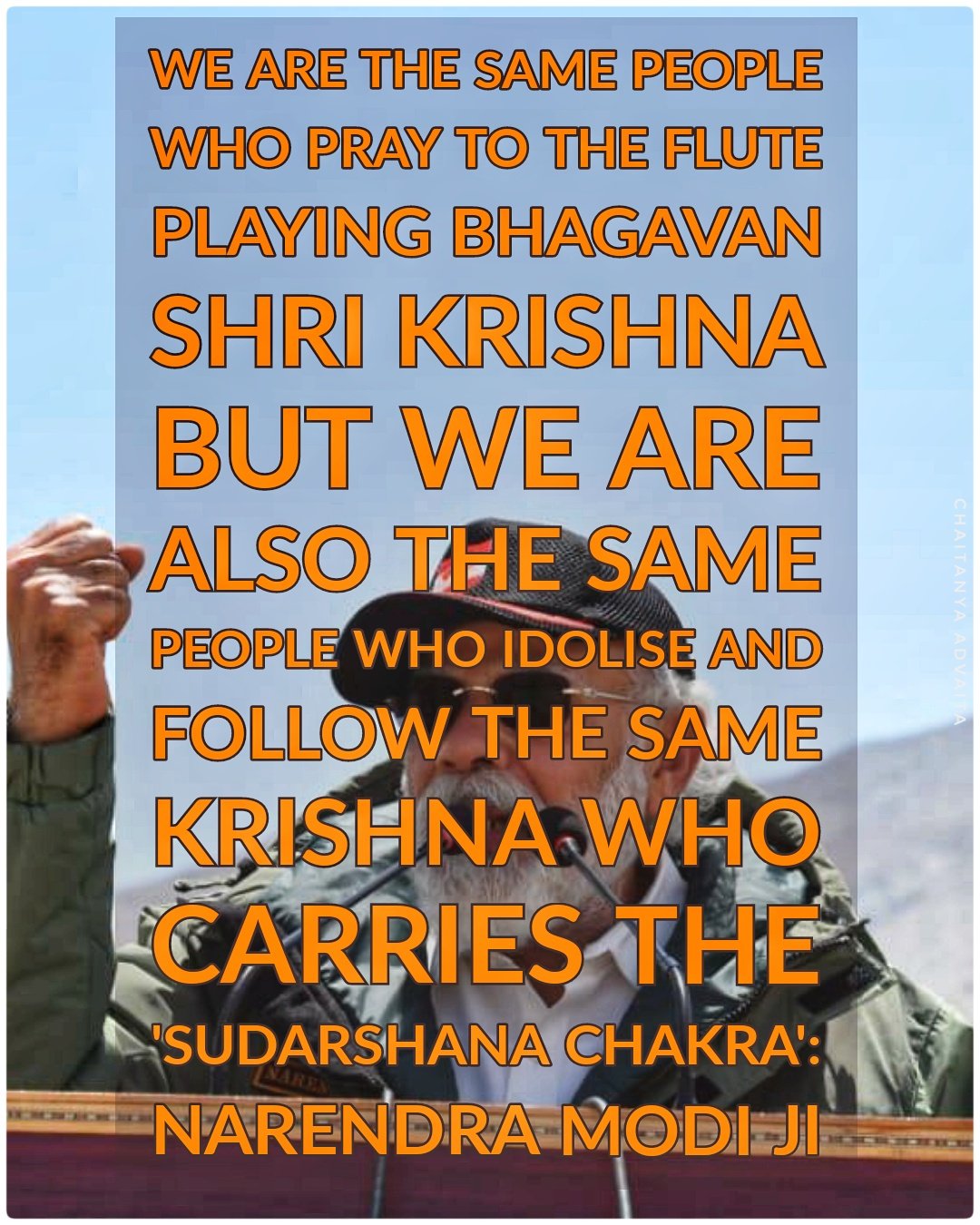Pulikeshi wrote:sudarshan wrote:Maybe so, but India is no longer Buddhist. If you read Fa Hian, the attitude towards Hindus was one of overwhelming condescension and pity. Hsuan Tsang was somewhat better, but the same attitude shows. Hsuan Tsang extensively describes Buddhist legends and stories from India, collected Buddhist relics and statues, visited Buddhist sites. He talks about Hindus, but in very superficial terms, nothing about their beliefs, numbers, or legends. It's like he simply wasn't interested, the Hindus were simply regarded as laggards in the adoption of the one true religion, Buddhism. This accusation of a certain "patriarchy" in India isn't new, both Fa Hian and Hsuan Tsang identified the true custodians of the Hindu way, and subjected them to much bile and vitriol. Methinks the modern Chinese attitude towards India is simply a continuation of that.
You are right about the religious chauvinism exhibited. Indian Buddhists exhibited the same attitude so not surprising the Chinese copied..
But my questions are on state policy... Based on Confucian or otherwise... Has China treated India (chola for ex) historically as a vassal state?
Indian scholarship seems to be regurgitating Western scholarship rather than look deeper into some of the questions I’ve raised...
What the Chinese are doing now seems more like a post colonial “opium” hangover!
** Long Post **
I will offer some general comments, over and above what Sudarshan has so accurately described, in order to give an answer.
First of all, Western scholarship on China is extensive and very intellectual too. There is no need to dismiss that. Indian scholarship of China is meagre and is evolving only now, tracing back our cultural, political and trade connections. For example, our group is involved in tracing the Tamilnadu-China connect, as we find interesting bits of information. Our preservation of history is abysmal creating obstacles.
Secondly, except for a brief period of the Yongle Emperor (real name Zhu Di), the second Ming Emperor, who sent his eunuch Zheng He on seven voyages westwards to India and east Africa (during first half of the 15th century), there was no maritime expedition force from China. The land route was very difficult anyway. The Song dynasty mostly confined themselves to the Japan Sea though some might have come to India, but only on trade. The Mongol Yuan dynasty, especially Kublai Khan built warships to visit southeast Asia across the Indo-China Sea and conquer them, but until Admiral Zheng He, there was not much maritime contact directly by the Chinese with us. As the coffers of the Ming Empire dwindled, the Emperor usurped foreign trade from the traditional traders and ordered only the State to run it (a la modern day Chinese SOE). That was how & why, the Emperor's most-trusted eunuch was sent on these voyages. They were both commercial and geo-political. Trade follows the flag but with Zheng He, both came together. Because of trade winds and the well-known circumambulatory route of Sri Lanka, these Zheng He trips ended up on India's West Coast, Kozhikode & Cochin to be precise. Zheng He used to come with, by some accounts, six hundred ships usually very large causing panic to Kingdoms en route. The objective was clear, to make these coastal states tribute-paying vassals to thhe Yongle Emperor, unwilling Kings were taken back to the Emperor's court and after suitable admonition and extraction of promise were returned and re-installed. The Zamorin of Calicut wouldn't have been an exception. There are records of the Zamorin sending his emissaries to the Chinese court of the Yongle Emperor. It is also true that the King of Cochin sought the support of the Yongle Emperor, from the threats of the Zamorin of Kozhikode, and Zheng He delivered that support. That was a kind of Thucydides Trap between an established state (Kozhikode) and a rising one (Kochi), perhaps and the Chinese intervened. At that point of time, Annam (Vietnam), Cambodia, Korea were already vassal states, no doubt. Japan was on and off. The Chinese Emperor's Court had a special office for protocol handling for these vassal states and that existed well until the last Manchu Emperor was removed in 1912.
Though Kanchipuram in Tamilnadu has an important connection with the Chinese, that was only at a religious level. Kanchipuram was a great city where Saivism, Vaishnavism and Buddhism attained great heights simultaneously. Xuanzang (known also as Hsuan Tsang or Huan Tsuang in some Indian texts) came to Kanchipuram and took part in the coronation (or some other function) of Narasimhavarman (who built the Shore temples) in 7th century CE. The Kailasanathar Temple even today has a relief of this event with a Chinese holding a Chinese umbrella over the head of the King. It is believed that it was Xuanzang. Bodhidharma, a Pallava prince renounced royalty, and had already gone to Guanzhou in early 6th century CE, again from Kanchipuram and established the immortal Shaolin temple and introduced Chinese to the art of self-defence (Kung Fu) based on
Kalaripayattu. Vajrabodhi, a Brahmin-turned-Buddhist went, again from Kanchipuram, to Chang'an (the old capital until it was moved to Dadu - present day Beijing- by again the same Yongle Emperor of the Ming dynasty because Zheng He had brought in huge wealth from his trade-cum-geopolitical maritime trips). Vajrabodhi exercised enormous influence over the Emperor.
Among the Chola Kings, Kulottunga Chola who conquered Sri Vijaya also sent emissaries to the Chinese Emperor, but that is probably on his own volition.
Now, coming back to some of the questions that you asked.
One, let's disabuse ourselves of the notion that the ancient Chinese venerated India & Indians, except to the extent of the Buddha, Buddhism and its Sutras. Even that created two problems for them. One was, how could an Emperor pay obeisance to a monk, especially when the monk was sitting and the Emperor was standing? That was not heard of in a Confucian-ordained hierarchical society where the Emperor was the Son of the Heaven. Secondly, the embrace of Buddhism lead to issues with the two other ideologies already entrenched in China, Daoism (or Taoism) and Cofucianism. The Emperors had to walk a fine balancing line all the time, though many Emperors threw their lot behind Buddhism. However, the bureaucracy was deeply Confucian, trained as it was rigorously by an institute setup for that purpose (like the IAS Academy at Mussoorie).
Two, on the question of whether the 'Chinese Awe' ended with the Tibetan annexation, the first point is that there was no 'awe' to start with. There certainly was admiration for some aspects of Indian way of life, perhaps. Some Chinese Emperors even called themselves the 'Maitreya' (the future Buddha) and the Dragon Throne was placed on a flight of steps that symbolized 'Mount Mahameru', an important Buddhist idea as well.
Three, what the Chinese thought of the conquest of India by the British, it is difficult to say, IMHO, because unlike China, we didn't exist as a monolith and therefore the British conquest was piecemeal, more like the Chinese salami slicing in Ladakh and the Indo-China Sea (or, is it the Champa Sea?), and was a work-in-progress almost till the end of the Raj. Much of external trade & contact were stopped by the Emperor too for various reasons. There was turmoil within China itself. So, one cannot be sure how much attention did they pay to us since 1857, the watershed year in our history.
On national humiliation, it is a convenient handle used by the CCP to whip up passion and national fervour because the Hundred Years were preceded by 250 years of Yuan (Mongol) rule and nearly 300 years of the Qing rule (the Manchus). In between, no Emperor had the wherewithal to stop constant punishing raids from the horsemen of the steppes (the original Wolf Warriors) even after the Great Wall was built at great cost, and the Tibetan Army had defeated the combined might of the Emperor's and Turkestan's army. For two centuries, the Chinese Emperors thought it fit to marry their princesses off to Tibetan royalty and send them huge gifts to keep them happy !! Why aren't these any humiliation in a country that boasts continuous historical records and seems proud of it?


